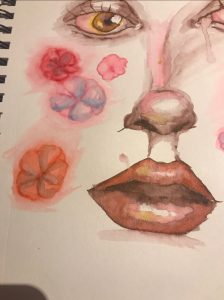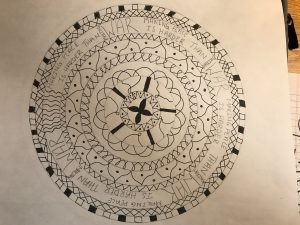In my last post, I talked about the reasons for why there is such a lack of vegetarians in the US. I went over various reasons, the last of which being due to health reasons, in other words, those who had tried vegetarian diets realized they had felt healthier prior to when they quit meat. I concluded the post by discussing the importance of iron (which happens to be found primarily in meat), and the fact that you can in fact achieve iron sufficiency without meat, it just takes a little extra effort.
On my last post, I received a comment asking me about alternative ways in which one can maintain sufficient iron levels without meat, as well as if there are currently resources available in helping new vegetarians adapt to the lifestyle. Without further ado, let’s get into it.
Though the most iron dense foods around are meat (primarily beef), there are other non-meat foods that contain the component, just in lower levels per serving.
Some of these foods include lentils, beans, spinach, tofu, seeds, (such as pumpkin, sesame, and squash), dried apricots, chickpeas, and baked potatoes. Though all of these foods contain lower mgs of iron per serving compared to meat products, they can still very much get the job done when eaten regularly.
If you’re someone who for some reason can’t rely on the above foods to maintain their iron levels, then a great alternative is daily supplements.
As I mentioned before, I am very anemic, and though I do eat many of the foods listed above, my body doesn’t absorb iron as well as other people’s. Because of this, I take daily iron supplements, which are over the counter, and give you a healthy daily dose of iron. These are perfect for people who are vegetarian, or whose bodies simply don’t absorb iron as well.
If you’re a carnivore, however, you should talk to your doctor before taking these supplements. This is because unlike some vitamins/minerals, iron can be quiet dangerous when over consumed, so it’s important to make sure that iron supplements make sense when combined with your personal diet and lifestyle.
Now when it comes to resources people can use when acclimating to a vegetarian lifestyle, I’d say the best options around would be a dietician and/or your medical doctor. Since dietician’s are highly knowledgeable about the world of foods and nutrition, I think conversing with one during and/or prior to becoming a vegetarian would be highly beneficial. If you don’t have access to a dietician (which many people don’t), then I’d suggest relying on the internet to inform yourself about helpful tips and tricks to transitioning from a meat eating lifestyle to a vegetarian one. Besides that, obviously keeping in touch with your regular doctor while transitioning is very important as well.
As for my personal experience, I have started to becoming incredibly used to my vegetarian lifestyle. Since beginning my iron therapy a few weeks ago, I have generally felt more energized, alert, and healthy. And though I used to love chicken and fish, I find that I no longer crave them like I used to.
I day to day life, I have began to emphasize the natural world around me more and more, and often find myself advocating for the vegetarian diet casually among my peers. Through speaking openly about my journey, my family have also decided to hop on board, and have decided to try living a more green lifestyle. So far, they’re finding it highly doable, as well as beneficial to their health and their minds (for moral reasons).
My goal from here on out is to continue to inform as many people as possible about the positive effects vegetarianism has had on me and my health, and continue to spark conversation about the importance of animal rights.
https://www.nomeatathlete.com/relax/
https://www.webmd.com/diet/iron-rich-foods#2


